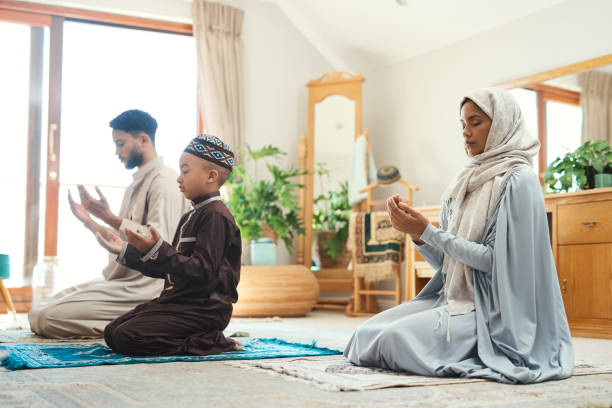The ninth month of the Islamic calendar, Ramadan, is regarded as the most sacred month among Muslims. Muslims all throughout the globe observe a fast during this month from sunrise to sunset, skipping meals and other bodily demands. Muslims should benefit from this fasting by learning self-control, compassion for the less fortunate, and a closer spiritual bond with Allah.
Ramadan is a time for greater prayer, almsgiving, and deeds of goodwill in addition to fasting. Throughout this month, Muslims are urged to read the Quran more often and visit the mosque more regularly. In addition, many communities gather for Tarawih, a special nighttime prayer.
Eid al-Fitr, a joyous occasion that involves prayer, feasting, and gift-giving, commemorates the conclusion of Ramadan. For Muslims all across the world, Ramadan is a time for introspection, spiritual rejuvenation, and fostering communal ties.
One of the Five Pillars of Islam, along with faith, prayer, charity, and Mecca pilgrimage, is the month-long observance of Ramadan. It is believed that the month of Ramadan is a time for introspection, self-improvement, and increased adoration of Allah. Ramadan is known for several spiritual activities, such as prayer, meditation, and introspection.
It is thought to be a season of spiritual rebirth during which people might strengthen their ties to their religion and their relationship with Allah.
Here are some ways that Ramadan can help individuals connect with their faith:
Fasting
Fasting is one of the Five Pillars of Islam, and it is observed throughout Ramadan. It entails fasting from dawn to sunset and forgoing all food and drink. Muslims are reminded of the significance of spiritual nutrition by depriving themselves of their bodily necessities. Fasting can aid in the development of self-control and discipline, both of which are necessary for spiritual development.
Prayer
Ramadan is a season of fasting and prayer, thus Muslims are urged to pray five times a day and participate in congregational prayers at the mosque. These prayers support Muslims in their spiritual relationship with Allah. Muslims also recite unique prayers known as Taraweeh throughout Ramadan, which are said in the evenings following the Isha prayer. These prayers require recitation of a section of the Quran each night until the entire Quran is completed by the end of Ramadan and are often conducted by an Imam.
Reading
Muslims focus on reading the Quran throughout Ramadan because they consider it to be the message of Allah. Throughout this month, Muslims are urged to read and contemplate the Quran. Those who read the Quran can better comprehend their religion and have a stronger bond with Allah.
Charity
Ramadan is a time when people should donate to those in need. Muslims are urged to give to charities and assist people in need. By exhibiting generosity and compassion, this act of kindness can aid people in strengthening their spiritual connection.
Reflection
Reflection is also an important aspect of Ramadan. Muslims are encouraged to reflect on their behavior, their thoughts, and their actions during this month. They are encouraged to be mindful of their words and actions, to be kind to others, and to refrain from gossip and negative thoughts. This reflection can help Muslims to improve their character and develop a stronger sense of empathy and compassion.
Meditation
Meditation is another spiritual practice associated with Ramadan. Muslims are encouraged to reflect on their lives, their relationship with Allah, and their spiritual journey during this month. This reflection can take the form of meditation, where Muslims sit quietly and focus their minds on their breath, or on specific verses of the Quran. This practice can help Muslims to gain a deeper understanding of themselves and their relationship with Allah.
Muslims use Ramadan as a time to ponder their lives and spiritual connections to Allah as well as to strengthen such connections. Muslims can deepen their religion and find more serenity and meaning in their lives via prayer, meditation, and introspection. In conclusion, Ramadan offers a chance for people to deepen their connection to their faith via fasting, prayer, reading the Quran, charitable giving, and self-reflection. People can develop their spiritual links and their relationships with Allah by partaking in these activities.










